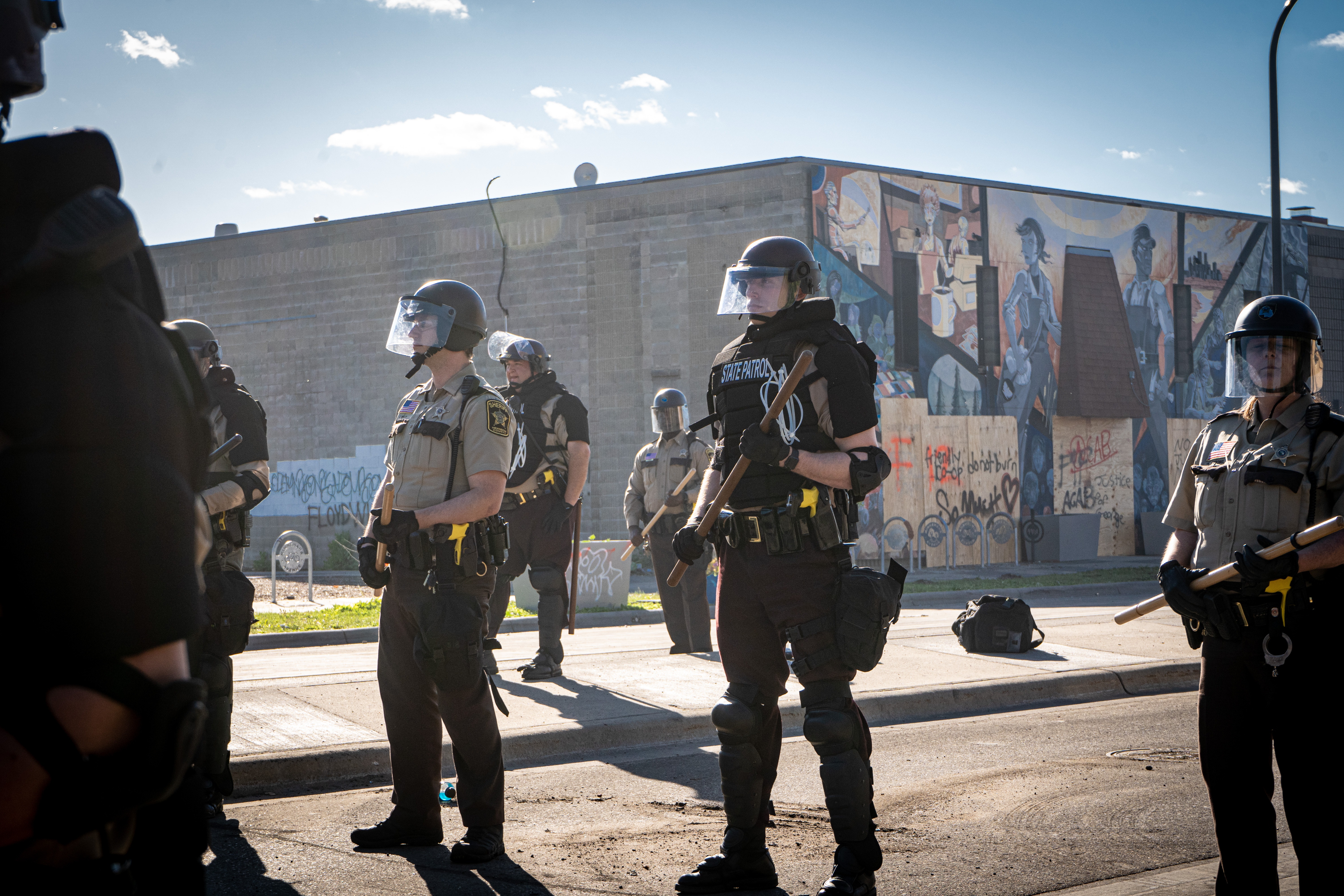What Minneapolis' Vote To Replace The Police Could Mean For The Future Law Enforcement
Residents will be voting today.
 MUNSHOTS / Shutterstock
MUNSHOTS / Shutterstock The future of the Minneapolis Police Department is now in the hands of voters as ballot votes roll in with results to be expected on Tuesday night.
The ballot question will ask residents whether they want to replace the police department with a new department of public safety.
The expected change comes a year after the murder of George Floyd, which sparked public debate over defunding or abolishing police departments all across the country.
What happens if Minneapolis votes to replace the police department?
The proposed amendment to the city charter would remove language that mandates Minneapolis have a police department with a minimum number of officers based on population.
It would be replaced by a new Department of Public Safety that would take a “comprehensive public health approach to the delivery of functions” and “could include” police officers “if necessary, to fulfill its responsibilities for public safety.”
The proposed change of the police department has divided residents of Minneapolis with supporters backing the call for public safety to not only include police officers but also mental health and substance abuse experts, violence interrupters and others better suited to de-escalate situations than armed police officers.
Opponents of the proposal are incredibly skeptical of the push back against police, citing the vague wording and newness of the ballot initiatives.
Residents against the replacement suggest that defunding the police is not the correct solution to addressing the violence in the city.
The proposal is a direct response to the murder of George Floyd.
In the days following the death of George Floyd, activists all across the country were calling for accountability in police departments in lieu of police brutality against people in marginalized communities.
There have been other cities in the United States that have listened to the public outcry against police, especially when it comes to the allotted funds that are given to law enforcement.
New York, Los Angeles, Seattle, Milwaukee, Philadelphia, Baltimore, and a dozen other cities have all reduced police spending.
The most notable change comes from Austin, Texas, with directly cutting $20 million from its police department and moving $80 million from the agency by shifting certain services out of law enforcement.
Much of the funds from the Austin police were reallocated to emergency medical services, mental health first responders, services for homeless people, substance abuse programs, and many more.
The concerns of misconduct by the police department in Minneapolis continue to rise, with more than 200 complaints filed this year.
A poll conducted in Minneapolis of 800 likely voters found that 49 percent of those surveyed supported replacing the police department and giving the City Council more authority over public safety; 41 percent opposed and 10 percent were undecided.
Supporters of the proposal have also pointed out the same initiative that happened in two New Jersey cities, Camden and Newark.
In Camden, the police department was disbanded and then rebuilt in 2013 after opposition from its predominantly Black and Hispanic residents.
In Newark, the Justice Department reached an agreement to allow a federal monitor to watch over a police force that had repeatedly violated the rights of its citizens, especially Black people.
Through the agreement, Newark police officers did not fire a single shot in 2020 or issue any payouts to settle police brutality settlements, and the murder rate dropped in the city.
However the end results of the proposal pan out, there is one good thing that can come from this, and it is the conversation around police departments and just how much power they should really yield in the communities they are sworn to protect.
Nia Tipton is a writer living in Brooklyn. She covers pop culture, social justice issues, and trending topics. Follow her on Instagram.

